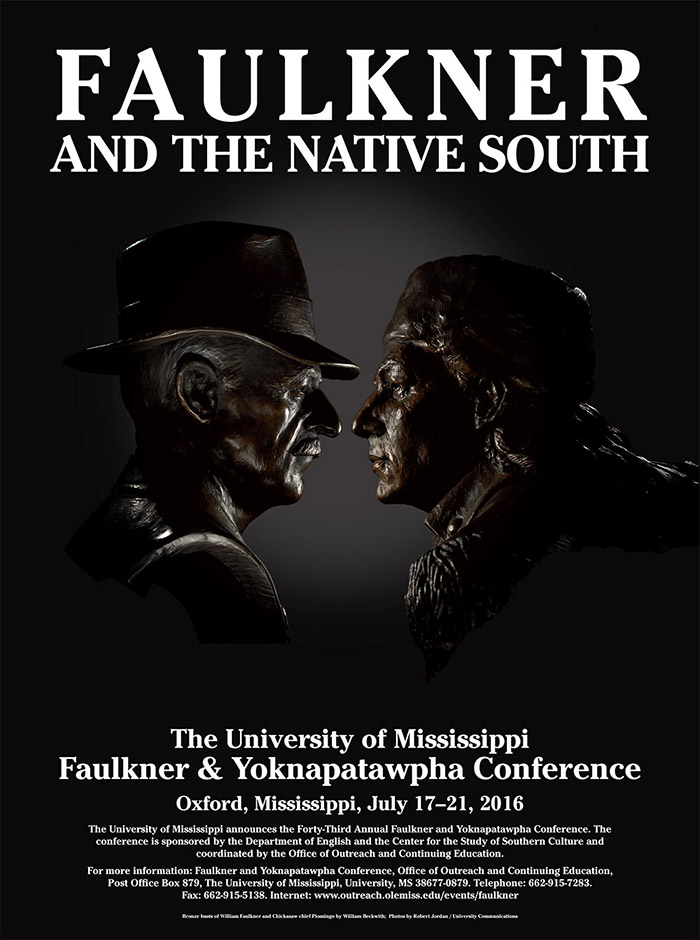
Brother, Is This Truth?: History, Fiction, and Colonialism in Faulkner's Mississippi
Location
Nutt Auditorium
Start Date
19-7-2016 10:30 AM
Description
This paper investigates what we can learn from comparing how historians, who are concerned with material reality, and literary scholars, who focus on imagination, frame Faulkner‘s stories of Indigenous Mississippi. It surveys shifting ideas about historical narrative and reviews the literary criticism of Faulkner’s Indians. It demonstrates the importance of stories crafted from historical documentation to understanding Faulkner’s Mississippi. At the time that Faulkner was writing, Choctaws just down the road from him were engaged in their own storytelling. The tales Mississippi Choctaws spun demonstrate how subaltern peoples use historical narratives for powerful political purposes. Considering the actions of Mississippi’s actual Indigenous peoples locates Faulkner’s imaginary Indigenous peoples in a critical historical context of colonialism. The stories that Mississippi Choctaws crafted about themselves, excavated from the archives, deserve a place alongside Faulkner’s work as a way to think about Native Southerners and that elusive and contingent thing we call truth.
Relational Format
Conference proceeding
Recommended Citation
Osburn, Katherine M. B., "Brother, Is This Truth?: History, Fiction, and Colonialism in Faulkner's Mississippi" (2016). Faulkner and Yoknapatawpha Conference. 12.
https://egrove.olemiss.edu/fy/2016/schedule/12
Brother, Is This Truth?: History, Fiction, and Colonialism in Faulkner's Mississippi
Nutt Auditorium
This paper investigates what we can learn from comparing how historians, who are concerned with material reality, and literary scholars, who focus on imagination, frame Faulkner‘s stories of Indigenous Mississippi. It surveys shifting ideas about historical narrative and reviews the literary criticism of Faulkner’s Indians. It demonstrates the importance of stories crafted from historical documentation to understanding Faulkner’s Mississippi. At the time that Faulkner was writing, Choctaws just down the road from him were engaged in their own storytelling. The tales Mississippi Choctaws spun demonstrate how subaltern peoples use historical narratives for powerful political purposes. Considering the actions of Mississippi’s actual Indigenous peoples locates Faulkner’s imaginary Indigenous peoples in a critical historical context of colonialism. The stories that Mississippi Choctaws crafted about themselves, excavated from the archives, deserve a place alongside Faulkner’s work as a way to think about Native Southerners and that elusive and contingent thing we call truth.

